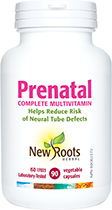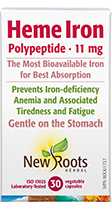Which Supplemental Micronutrients Are Essential During Pregnancy?
Pregnancy naturally induces a moderate but exponential increase nutrient demand. Ideally, an adapted diet should be able to meet the specific needs of the different periods of pregnancy, but it is often difficult for a pregnant or nursing mother to obtain every essential nutrient. Increased caloric demand remains minimal during the first trimester; however, it increases by 300 to 500 calories per day, respectively, during the second and third trimesters. So, instead of wondering whether you are satisfying this additional demand essential to your child’s development, ease your mind and fill those needs with a properly balanced, comprehensive prenatal formula that will guarantee micronutrition for the mother and fetus.
The Cochrane and systematic studies the World Health Organization (WHO) refers to show that taking a multivitamin and mineral (MVM) during pregnancy significantly reduces the risk of low birth weight and small gestational-age size, notably by covering common deficiencies of vitamin A, iodine, iron, zinc, or folic acid. Therefore, for periods prior to conception and pregnancy, Health Canada recommends that women take a daily MVM containing at least 400 µg of folic acid and 16–20 mg of iron. The other important micronutrient is vitamin D. Now let’s get into more detail with each of these three essential micronutrients.
First, folic acid (vitamin B9) is the most important supplement worth considering, namely to prevent neural-tube defects, with a daily recommended dose of 400 µg, starting before conception and extended through the first trimester. In fact, most health professionals suggest a dose of 1000 µg per day. Note that combination with vitamin B12 (preferably in its active form, methylcobalamin) and vitamin C potentiates the action of B9, whose supplementing can mask a B12 deficiency. In special cases of high-risk pregnancies, where there is a family history of neural-tube defects, a discussion with a doctor or health-care practitioner for higher doses of B9 should be considered. The same goes for the prevention of preeclampsia, a form of hypertension occurring as early as the twentieth week of pregnancy and whose risk decreases with vitamins B9 and D. Moreover, in its natural, biologically active form of cholecalciferol, vitamin D is recommended for all women, before and during pregnancy, for promoting the development of the fetus’ skeleton. According to the National Academy of Medicine, to which the Canadian government refers, the nutritional intake reference for pregnant or lactating women is 600 IU per day of vitamin D, with a tolerable upper intake level estimated at 4,000 IU. Health-care professionals often recommend more than 1,000 IU for the entire breast-feeding period to boost vitamin D in breast milk.
Iron completes this core trio essential for pregnancy, because the mother’s iron reserves are called upon to ensure additional hemoglobin formation, which is crucial to the placenta’s oxygen supply. A preferred option is to supplement with the heme form of iron, whose bioavailability is higher than in nonheme iron (you’ll need less for similar effects), and it doesn’t carry the risk of nausea and other side effects.
There is something for everyone: Either a prenatal multi, which conveniently covers a wide range of beneficial micronutrients; or, for women who wish to take only the bare necessities, a synergistic formula combining heme iron, B9, B12, and vitamin C; with a daily drop of vitamin D. All the excitement, enthusiasm, and implications of pregnancy already create enough natural stress; there is no need for more, when various natural solutions exist for meeting micronutrient needs during this magical life experience!
 Guillaume Landry, MSc, Naturopath
Guillaume Landry, MSc, Naturopath
A native of the Jura mountains of eastern France, he shares
his passion for the wonders of nature and natural medicine.

 Stores
Stores

